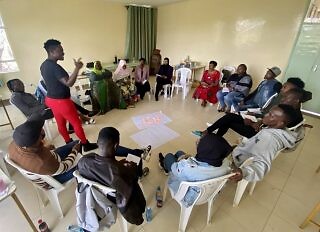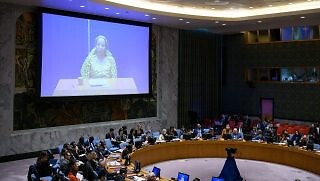The upcoming UN Peacebuilding Architecture Review provides a unique opportunity for the UN to shape the future of peacebuilding at a moment when sentiment toward multilateral institutions and the liberal framework guiding peacebuilding as a whole is changing. The way in which the review is developed and implemented, as well as the outcomes, offers a platform to tackle these contemporary challenges and guide the field of peacebuilding into the future. Central to this is the meaningful inclusion of diverse voices through innovative processes. Toward this end, the UN can work in partnership with intermediaries with a track record of organizing such inclusive and participatory processes.
Tag: civil society
-
-
Even though civil society has been impacted by the UN counterterrorism architecture, opportunities for a broad range of civil society actors to meaningfully engage with counterterrorism programming and policy-making remain limited at best.
-
Examples from Ethiopia, Egypt, and Russia indicate that as civic space shrinks, traditional models of professionalized civil society work come under pressure.
-
Climate Action Network Director Wael Hmaidan discusses the prospects for a legally binding agreement coming from climate talks in Paris at the end of the month.








